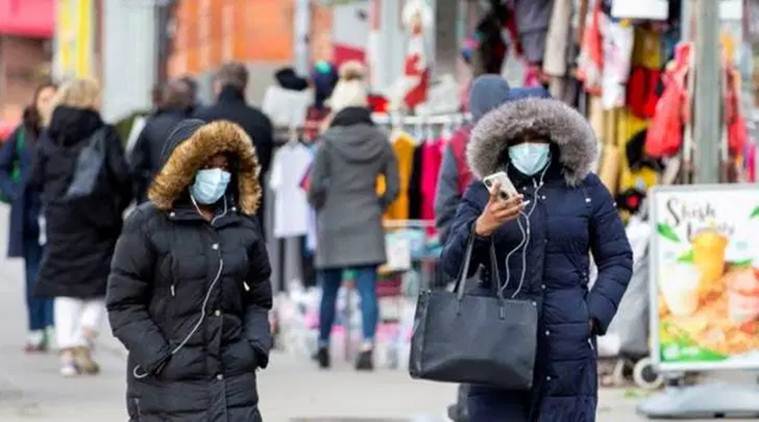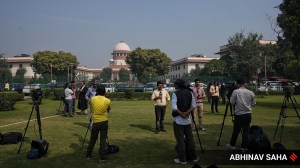- India
- International
Coronavirus poses a challenge to China’s place in global affairs, its political leadership
Optimists hope that a sharp drop in economic activity in the current quarter will be followed by a steep uptick in growth in the next when the virus is contained and normalcy returns. Pessimists, however, suggest that the economic disruption could have lasting effects.
 Last week’s death of the doctor, Li Wenliang, who had warned about the impending catastrophe back in December but was charged by the police for “spreading rumours”, has seen an outpouring of emotion in China.(Reuters/File)
Last week’s death of the doctor, Li Wenliang, who had warned about the impending catastrophe back in December but was charged by the police for “spreading rumours”, has seen an outpouring of emotion in China.(Reuters/File)
The scale and impact of the current crisis in China triggered by the spread of the new coronavirus has raised questions about its political implications. If the epidemic turns into a pandemic, as some analysts bet, China’s all-powerful leader Xi Jinping might not be able to escape the blame and will likely come under considerable political pressure.
Others take a step further and speculate that the backlash against the government’s mishandling of the crisis could turn into a systemic threat against the dominance of the Chinese Communist Party, that is all set to celebrate the centenary of its founding next year.
Sceptics, however, dismiss such speculation as merely reflecting the perennial hope among Beijing’s harshest critics who can’t wait to see a China without the CCP. Realists point to the massive mobilisation of state power by President Xi in limiting the spread of the virus. Xi and the CCP have invoked the metaphor of “people’s war” from its revolutionary history to cope with the massive challenge.
Whether it is the lockdown of Hubei province and its capital Wuhan, from where the virus began to spread, or in deploying thousands of doctors and health workers in the province and building massive hospitals for treating the infected, China’s handling of the crisis had drawn much respect, grudging or otherwise, from the international community.
To be sure, there were major failures in the initial faltering response to the crisis. The attempts at the lower levels to cover-up or underplay the crisis and the inadequate appreciation at the higher levels of the potential consequences are common to all large bureaucracies. The party-state in China is not an exception.

Yet, there is no question that a crisis of this magnitude — as of Monday more than 900 people have lost their lives to coronavirus — will have some political impact. The party-state is certainly having some difficulty in containing the public outrage against the initial failures.
Explained: Why China has emerged as the epicentre of global outbreaks of disease
The CCP, however, is bound to shield the supreme leader from any damaging criticism and in fact, celebrate Xi’s triumph in containing the spread through a determined effort. Responsibility will be affixed on provincial officials in Hubei and a purge of some kind may have already begun.
Last week’s death of the doctor, Li Wenliang, who had warned about the impending catastrophe back in December but was charged by the police for “spreading rumours”, has seen an outpouring of emotion in China. Beyond the outrage at the system’s attempt to suppress to a conscientious whistle blower, there have been calls for “freedom of expression” on the social media.
But China’s real challenge, however, might lie in addressing the uncertain economic consequences of the health crisis. Nearly two decades after the SARS epidemic— which broke out of China in 2002 and killed 774 people worldwide — China is now a much larger economy and its interdependence with the world has only deepened. This in turn lends a strong international dimension to China’s crisis.
Optimists hope that a sharp drop in economic activity in the current quarter will be followed by a steep uptick in growth in the next when the virus is contained and normalcy returns. Pessimists, however, suggest that the economic disruption — in terms of the impact on internal and external trade and the breakdown of the global supply chains — could have lasting effects. Some suspect that the disruption could reinforce the slowdown driven by a number of other internal and external factors including the trade war with the US.
Some in the West hope that a prolonged economic crisis might turn the people against the CCP. For now though, Beijing is channeling the resentment against the West. Beijing has criticised the advisories from various countries against travel to China and the cancellation of flights as over-reaction. It has also been lukewarm to efforts of various countries to evacuate their citizens from Wuhan and Hubei.
While Delhi has managed to convince Beijing to let India airlift its students from Wuhan, Pakistan has declared that it will not evacuate its students as a gesture of political solidarity with China in a time of crisis. Many of India’s other South Asian neighbours are torn between the reluctance to offend Chinese sentiment and the mounting domestic pressures to bring students back.
The external affairs minister Subrahmanyam Jaishankar said last week that India has been willing to bring back students from all the neighbouring countries. But the logic of balancing between Delhi and Beijing has prevented most of the smaller neighbours from requesting Indian assistance. Maldives has been the only exception.
Beyond South Asia, many countries in East and Southeast Asia have been hesitant to be seen as rushing to cut themselves from China. Deep economic interdependence and massive flows of Chinese tourists led to much dithering among the East Asian countries in their early responses to the crisis.
Prime Minister Narendra Modi has thanked President Xi for letting the government get the students out of Wuhan and has also offered assistance in combating the spread of coronavirus. It is not clear what kind of assistance that Delhi has in mind and the nature of Beijing’s response. While being critical of the US travel restrictions against China, Beijing has certainly been open to cooperation with the US in dealing with the crisis.
Beyond its offer of assistance, Delhi can learn much from Beijing’s handling of the crisis. Given the constraints on state capacity in India and the nature of its political system, India is especially vulnerable to pandemics of the kind China has managed — the SARS during 2002-03 and the coronavirus now. Delhi must explore all potential cooperative engagement with Beijing as well as its other international partners on pandemics — an important but under-addressed challenge for national, regional and international security.
This article first appeared in the print edition on February 11, 2020 under the title ‘The battle in Beijing’. The writer is director, Institute of South Asian Studies, National University of Singapore and contributing editor on international affairs for The Indian Express.
EXPRESS OPINION
More Explained
Apr 26: Latest News
- 01
- 02
- 03
- 04
- 05











































